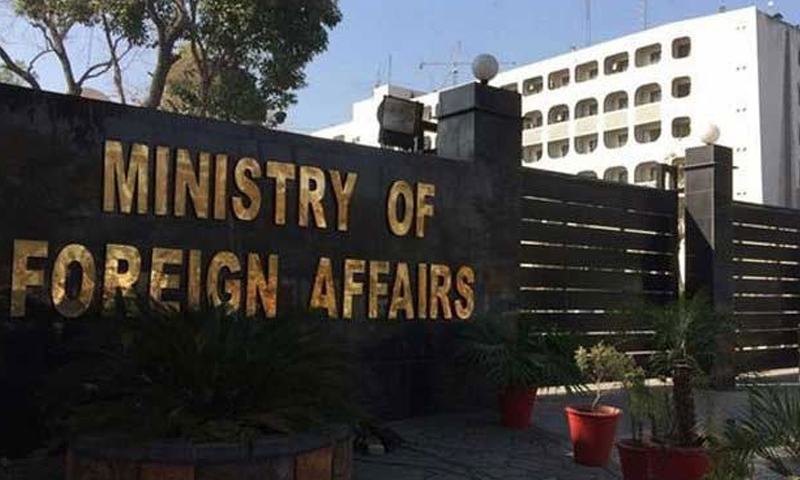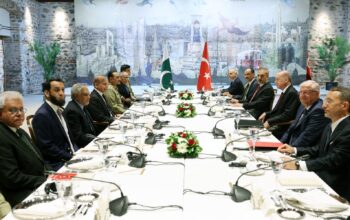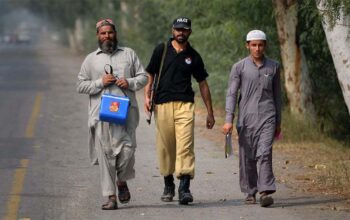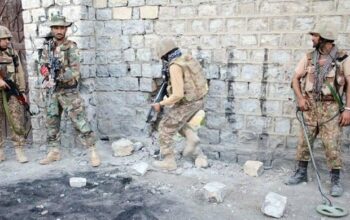By Staff Reporter
ISLAMABAD: Pakistan said on Thursday it had carried out air strikes on Baloch militant groups in Iran, two days after Iran said it had bombed “terrorist targets” in Pakistan, in a rare exchange of cross-border raids that raised tensions between the Muslim neighbours.
The surprising tit-for-tat airstrikes escalated tensions between the two countries, who very rarely accused each other in public of harboring and supporting militant groups that operate across their porous border.
Pakistan’s Foreign Office said it had launched “a series of highly coordinated and specifically targeted precision military strikes” against terrorist hideouts in Sistan-o-Baluchistan province of Iran, killing a number of terrorists in an operation codenamed “Marg Bar Sarmachar,” or “Death to Rebels.”
The statement said Pakistan had repeatedly shared its concerns with Iran about the safe havens and sanctuaries enjoyed by Pakistani-origin terrorists in the ungoverned spaces inside Iran, who had continued to spill the blood of innocent Pakistanis with impunity.
“This action is a manifestation of Pakistan’s unflinching resolve to protect and defend its national security against all threats,” the statement added. “The successful execution of this highly complex operation is also a testimony to the professionalism of the Pakistan Armed Forces.”
The statement said Pakistan fully respected the sovereignty and territorial integrity of Iran, and that the sole objective of the strikes was to pursue its own security and national interest, which could not be compromised.
It also said that Pakistan upheld the principles and purposes of the U.N. Charter, including territorial integrity and sovereignty of member states, and that it would never allow its sovereignty and territorial integrity to be challenged, under any pretext or circumstances.
“Iran is a brotherly country and the people of Pakistan have great respect and affection for the Iranian people,” the statement said. “We have always emphasized dialogue and cooperation in confronting common challenges, including the menace of terrorism, and will continue to endeavor to find joint solutions.”
Pakistan’s air strikes came after Iranian media reported that Iranian forces had targeted two key strongholds of the militant Jaish al-Adl group in Pakistan and successfully demolished them by a combination of missile and drone attacks late on Tuesday.
The Iranian semi-official Tasnim news agency said the “focal point of this operation was the region known as Kouh-Sabz in Balochistan”, referring to a mountainous area in Pakistan’s southwestern province, where Baloch separatists and Sunni militants have been active for years.
Jaish al-Adl, or the Army of Justice, is a Sunni militant group that claims to fight for the rights of Iran’s Baloch minority and has been accused of carrying out several attacks on Iranian security forces and civilians in the past.
Pakistan, following the attack, recalled its ambassador to Iran and suspended all high-level visits between the two countries, escalating a diplomatic crisis over the cross-border airstrike by Tehran.
The latest flare-up between Pakistan and Iran also underscores the deep-rooted and complex nature of the Baloch insurgency, which spans across the region and involves multiple actors and agendas.
The Baloch insurgency in Pakistan has intensified in recent years, with several militant groups carrying out attacks on security forces, government officials, and infrastructure projects, especially those linked to China’s Belt and Road Initiative, which the country sees as a key driver of its economic development.
Copyright © 2021 Independent Pakistan | All rights reserved




